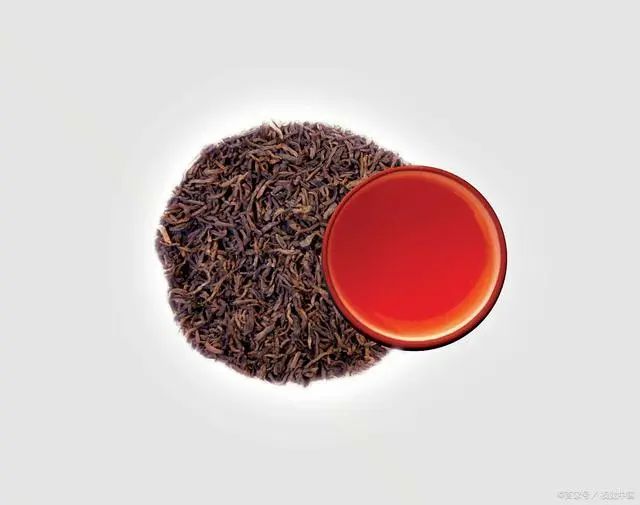Director Han shares health knowledge with you
Click below to follow for free↓↓↓
“The kidneys are the residence of water and fire, the foundation of the five organs and six bowels”
The kidneys are fundamental to human growth and development, yet modern people often suffer from “nine out of ten having kidney deficiency”.
In Traditional Chinese Medicine (TCM), kidney deficiency is categorized into kidney yin deficiency and kidney yang deficiency.
Kidney yang deficiency manifests as symptoms of weakened kidney yang energy.

So, what are the symptoms of kidney yang deficiency?
1. Weakness and soreness in the lower back and knees, with cold limbs, especially in the lower extremities.
2. Dizziness, mental fatigue, and easy exhaustion.
3. Pale or dark complexion, with a pale, swollen tongue and white coating.
4. Chronic diarrhea, undigested food, and early morning diarrhea.
5. Edema, particularly below the waist, with a pitting effect when pressed.
6. Clear, prolonged urination, dribbling after urination, reduced urine output, or frequent urination at night.
7. Hearing loss or tinnitus.
8. Drowsiness, vivid dreams, and night sweats during sleep.

There are four things that harm the kidneys; even if you are young, you should do them less to avoid kidney damage!
1: Stay away from high salt
Salt is a major culprit that increases the burden on the kidneys.
95% of salt is metabolized by the kidneys; excessive intake forces the kidneys to work harder.
Sodium, the main component of salt, causes the body to retain water, accumulating in the kidneys and further burdening them, leading to reduced kidney function.

2: Excessive sexual activity
Moderate sexual activity can enhance relationships and promote bodily metabolism, benefiting health.
However, excessive indulgence can damage kidney health and lead to premature decline.
TCM states: “Essence is the foundation of life”.
Modern Western sexologists recommend a method for calculating the frequency of sexual activity: multiply the tens digit of your age by 9; the tens digit of the product indicates the duration, and the units digit indicates the number of times during that period.

3: Frequently holding in urine
Holding in urine goes against a natural physiological regulation.
Frequent retention of urine in the bladder can breed bacteria, which can invade kidney health.
When you feel the urge to urinate, go to the bathroom immediately to avoid holding it in.

4: Delaying medical treatment
Clinically, many diseases are prolonged.
Many people rarely seek medical attention when they feel unwell, often delaying or self-medicating.
This behavior leads to worsening conditions, causing irreparable damage.

In daily life, to care for the kidneys, remember: one nourishment, one drink, one protection
One nourishment:
Black dates: A top food for nourishing the kidneys.
TCM states that black dates are cold in nature and rich in proteins, carbohydrates, and various vitamins, which nourish kidney yin and blood, and benefit the spleen and stomach.
People with poor kidney function should consider eating more black dates.

Winter melon: Recorded in the “Bie Lu” as: “Treats abdominal water retention, promotes urination, and quenches thirst.”
Winter melon extract can promote urination in animals, increasing urine output and enhancing the kidneys’ detoxification function.
Additionally, the total amino acids and triterpenoids in winter melon can prevent kidney damage and protect kidney health.

Chestnuts: Sun Simiao from the Tang Dynasty referred to chestnuts as “the fruit of the kidneys, suitable for kidney disease.”
Chestnuts belong to the spleen, stomach, and kidney meridians.
Chestnuts nourish the spleen and stomach, and are very suitable for those with kidney deficiency.
However, it is important to note that chestnuts should not be consumed in excess; raw ones are hard to digest, while cooked ones can cause qi stagnation.

One drink:
Tea made from corn silk and other herbs: Brew a tea bag with corn silk, plantago, yam, and rose petals, and drink one bag daily with hot water.
Corn silk is beneficial for urination, gallbladder function, blood pressure reduction, and blood sugar control.
Plantago, known as “bedwetting grass,” has excellent diuretic properties and promotes the elimination of harmful substances.
Rose petals are warm in nature, balancing cold properties and harmonizing the tea’s effects. Yam is a good medicine for nourishing yin and generating fluids.

Goji berry water: Goji berries nourish the kidneys and improve vision. They have a certain alleviating effect on kidney deficiency symptoms.
People with liver and kidney issues can eat more goji berries or brew them in water as a good option.

Hawthorn and mulberry tea: Combine black hawthorn, black goji berries, mulberries, and hibiscus to drink together.
Black hawthorn is rich in anthocyanins and polyphenols, promoting cellular metabolism.
Black goji berries benefit the kidneys, enhance essence, generate fluids, quench thirst, nourish the brain, combat aging, and promote circulation.
Mulberries, first recorded in the “Tang Bencao”, are sweet, enter the kidney meridian, and nourish the kidneys, enrich yin, improve eyesight, and reduce spots while promoting longevity.
Hibiscus tea helps expel stones and reduces the formation of kidney stones, protecting kidney health.

One protection:
Take care of your feet, as the kidney meridian starts from the feet.
Regular foot baths can stimulate acupoints, enhance kidney function, and prevent kidney diseases.
Foot baths are the cheapest form of health maintenance, positively affecting overall metabolism.
Especially soaking your feet before bed promotes sleep and regulates organ functions.

Foot tapping strengthens the kidneys; tapping the Yongquan (Kidney 1) point located in the first third of the foot’s sole helps detoxify the kidneys.
When tapping, you should feel warmth in the feet and apply slight pressure for the best effect.

Tiptoeing: Stand with feet parallel, shoulder-width apart, raise your heels, breathe deeply nine times, then drop down forcefully to stimulate the feet.
This can be practiced anytime and anywhere, doing 30 repetitions each time.

Old Ye shares health knowledge with you
Click below to follow for free↓↓↓

